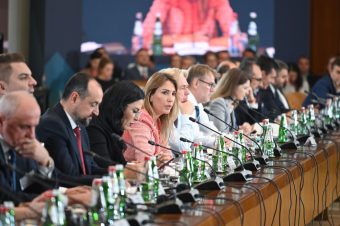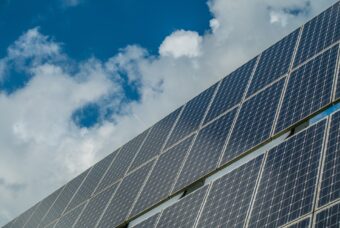
As long as the energy crisis lasts, maintaining stable energy production while providing enough energy for the domestic market remain the key to securing supply in the coming months. We spoke with Minister Dubravka Đedović, who helms the strategically important Ministry of Mining and Energy, about the extent to which citizens have listened to the Ministry’s recommendations regarding energy saving, the Ministry’s support for energy-vulnerable households and long-term plans in the energy sector that should help us in the transition to green energy.
EP: We have had quite warm weather in the past period ,which is why the heating season started a bit later than usual. Should we still be optimistic about the energy supply?
Dubravka Đedović: Both people and businesses in Serbia have a safe and stable supply of electricity and gas, which is the most important thing. We are importing certain quantities of electricity that we lack, which costs us a lot, in addition to importing coal. In terms of gas, we have a stable supply via the Balkan Stream gas pipeline. In addition to the natural gas storage in Banatski Dvor, we have more available quantities of gas stored in storage in Hungary. Also, the country’s crude oil and oil derivatives reserves have increased.
Because the weather in October was somewhat better than usual, we did not have to import electricity, for the most part, that month.
The Ministry’s recommendations on how to save energy during this winter in state and public institutions, local self-governments, businesses and households have already yielded the first results in October. We hope that the same will happen in the coming months. According to the data collated by EPS Snabdevanje, the total consumption of electricity in October was 11 per cent lower compared to the same month of the previous year. Out of 3.37 million households, as many as 45 per cent of them reduced their electricity consumption in October, thus making the largest number of households, around 700,000, eligible for a 30 per cent discount on their electricity bills.
Electricity prices on the market rose significantly in November. We are closely following market developments to react promptly and ensure safe supply at the lowest price for both individuals and businesses. Also, the state must take care of socially vulnerable citizens who are more affected than others by fluctuations in electricity and gas prices. We will pass a new regulation on energy-endangered customers quite soon, which will ensure discounts for as three times as many citizens as before.
IN FOCUS:
- WASTEWATER TREATMENT AND PRESERVATION OF FRESH WATER SOURCES
- SYSTEMIC SOLUTIONS FOR A HEALTHY ENVIRONMENT
- SCOBY — INSPIRATION IN A GLASS OF KOMBUCHA
EP: Your Ministry is also drafting strategic plans that, when implemented, will boost the share of renewable energy sources (RES) in the energy mix. Do you think your goals are ambitious?

Dubravka Đedović: We are currently developing the Integrated National Climate and Energy Plan and the new Energy Development Strategy, which will set goals related to the share of RES in total energy production, reduction of harmful gas emissions and energy efficiency. It is important that these goals are realistic and sustainable and that they are an incentive for the development the energy sector and the entire economy, which will align with the green economy principles.
The construction of new facilities that use renewable sources should be coordinated with the development of the electricity transmission and distribution grid so that the development of the energy sector is sustainable, efficient, and economical and leads to a higher degree of energy security and safety. Currently, our RES capacities are around 500MW, not including hydropower plants. In the next few years, we will generate an additional 400MW, primarily from wind energy. We are also working on improving the existing regulation so that, in the medium term, our system can accommodate eight times higher capacity. We want the energy produced from renewable sources to remain in Serbia, to be used by our citizens, and to export only the surplus. We are working on finding a model that is in the best interest of citizens, and at the same time, sustainable for investors.
EP: Today, RES makes up 26 per cent of Serbia’s energy mix, and the plan is to almost double the number of so-called green megawatts. Will our electricity distribution and transmission grid be able to support this?
Dubravka Đedović: Increasing the share of Serbia’s energy mix cannot take place at the wanted pace if we do not have a network that can support it. The transmission system is the backbone of the power grid. The construction of the Trans-Balkan Corridor should ensure greater safety and stability of the high-voltage grid, enable new green energy production facilities to connect to the grid, and have a better connection with neighbouring countries. I will continue to work on modernizing the electricity distribution grid, which is the bloodline of our energy system. The total losses in the distribution and transmission grid stand at around 12 per cent annually, which means that investing in the grid’s modernization can significantly contribute to improving energy security, i.e. reducing imports.
Interviewed by: Nevena Đukić
Read the story in the new issue of the Energy portal Magazine RESPONSIBLE BUSINESS



